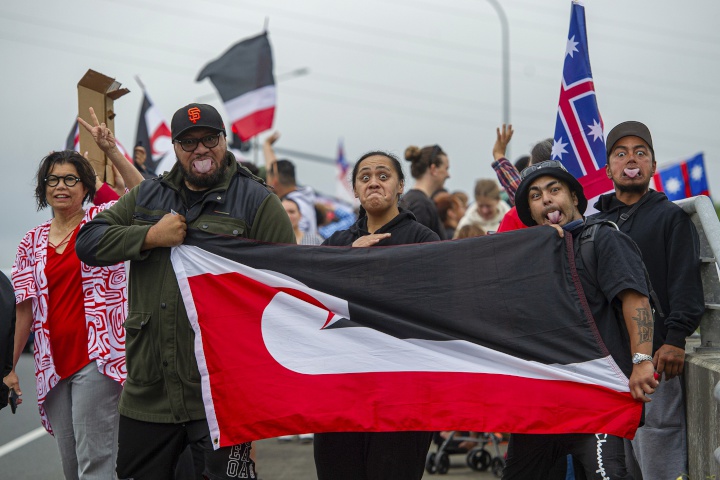Māori against NZ government’s decision to shut down indigenous health authority
Called Te Aka Whai Ora in Christopher Luxon, the Māori Health Authority was set up in 2022 to improve healthcare among Indigenous tribes, who suffer from significant inequalities compared to the rest of the population. The government, led by Prime Minister Christopher Luxon, who took office in October, claims to want to work for all New Zealand citizens, "Māori and non-Māori". But indigenous people have been protesting for months against the changes proposed by the new administration.
Wellington (AsiaNews) – New Zealand's new government has announced that the Māori Health Authority will be disestablished by 30 June, a decision that has sparked protests among New Zealand’s indigenous population.
Called Te Aka Whai Ora in the Māori language, the agency was created in 2022 to improve the health of the indigenous population, who make up 17 per cent of the population.
In December, hundreds of people gathered at the first session of the new parliament to protest the policies proposed by the right-wing government, formed by a three-party coalition led by Prime Minister Christopher Luxon.
The prime minister, who took office in October, announced his intention to reinterpret the Treaty of Waitangi on which the country is founded, to roll back the use of the Māori language.
Indigenous leaders have accused the new government of being "anti-Māori", whereas the latter claims it wants to work for the well-being of the entire nation, “Māori and non-Māori".
Health Minister Shane Reti explained that the Māori Health Authority will be incorporated into the national health system by the end of March.
The agency had been recommended by a permanent commission of inquiry called the Waitangi Tribunal, which has been taking Māori claims into consideration since the 1970s and suggesting possible remedial actions to the government.
Several studies have found major health inequalities between indigenous people and the rest of the population. Māori live about seven years less, their death rate from cardiovascular disease is twice as high, young people are almost twice as likely to be hospitalised for asthma, and the incidence of cancer is also significantly higher among Māori, his according to Health Ministry data.
“Māori know what is best for them. They need to be able to be funded to be able to resource solutions that are grounded in our own world view for our own people," said Jacqui Harema, chief executive of the largest Māori public health entity Hapa to Hauora, speaking about the government's decision.
This was the case, for example, during the COVID-19 pandemic. Once vaccines were provided, Māori health workers reached the indigenous population more effectively through targeted information campaigns and a relationship of mutual trust, Harema explained.
Meanwhile, Indigenous groups have taken legal action against the government's attempts to change the system, with a petition also lodged with the Waitangi Tribunal regarding the closure of Te Aka Whai Ora, which will occur before the tribunal can review the application.
In this regard, Prime Minister Luxon reiterated that the government is keeping its election promises.
Last month, more than 10,000 people gathered in the town of Ngaruawahia in response to the call of Māori King Tuheitia Paki.
Although some tribes are opposed to the Royal Māori Movement (born in response to British colonisation in the North Island, where the city of Auckland is located), the strong participation in the demonstration, according to some, is symptomatic of the determination of the indigenous people to preserve their rights.
Other protests followed on 6 February, on Waitangi Day, a national holiday that commemorates the anniversary of the signing of the treaty between the British Crown and the Māori tribes in 1840.
Recent research shows, however, that 32 per cent of the New Zealand population is unaware of the treaty and has never read any version or summary of it.
03/09/2021 15:03
21/03/2019 18:06
21/03/2019 13:30
19/03/2019 18:50







.png)










